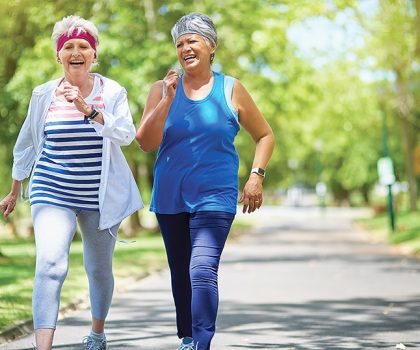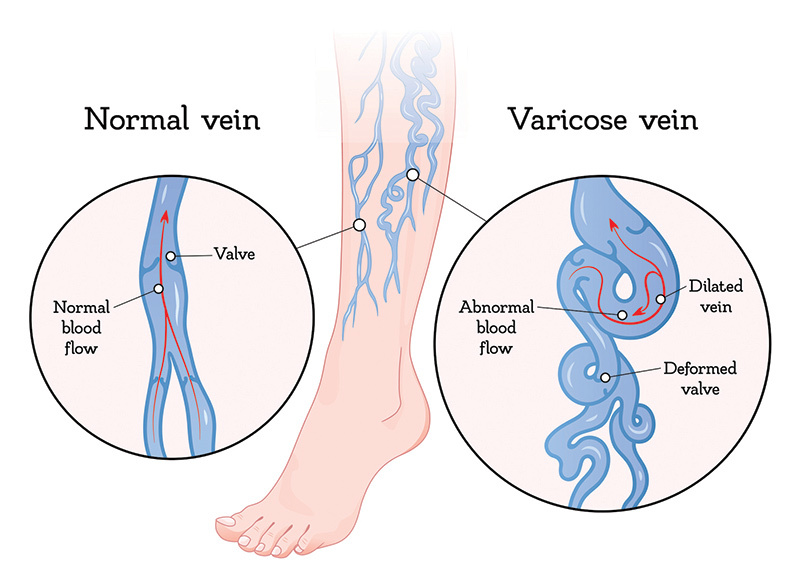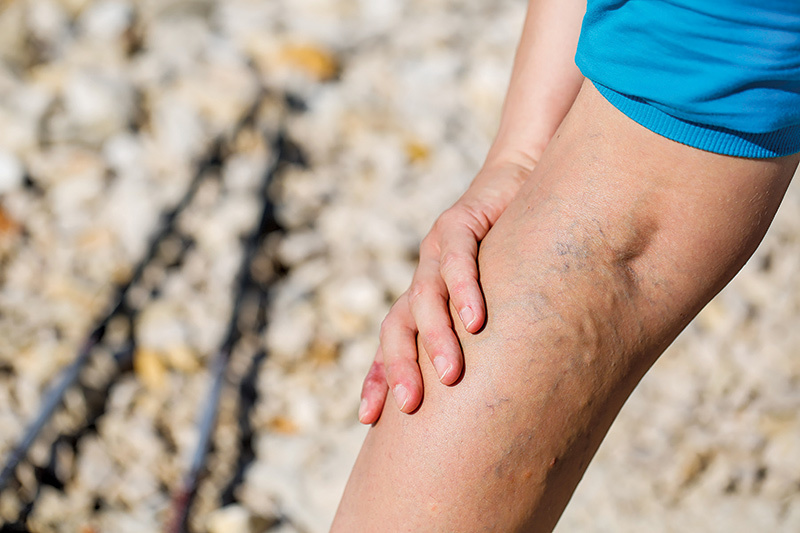Here’s what you can do right now to get back out there with healthy legs this summer

By Mimi Vanderhaven
One of the most popular New Year’s resolutions is the promise to improve our health by losing weight and exercising so we’re in better physical condition to enjoy the upcoming summer months. “This is Northeast Ohio,” says Dr. Sonja Stiller, founder of Mentor’s Center for Advanced Vein Care. “We cherish our brief summers, but it’s difficult to enjoy them when you’re suffering from symptoms of venous disease, like leg pain, swelling, fatigue, numbness, tingling, and changes to the skin, all of which can lead to more serious problems—including ulcers and blood clots. We can help with all those symptoms. This year, let’s make your resolution to improve your leg health a reality.”
Today’s leading-edge varicose vein treatments are minimally invasive, require no downtime, and are virtually pain-free. But they do take time. That’s why it’s so important to get started now.
“Many people contact our office in the spring hoping to have healthy legs by the summer, but unfortunately it doesn’t happen that quickly,” Dr. Stiller explains. “Most insurance companies have a four- to six-week compression stocking requirement before starting treatments. Most people see improvements in their leg health in just a few months after their initial consultation. But that means to enjoy a more active summer, you have to get started now so you can enjoy amusement parks, hiking, biking and walks on the beach without leg pain and swelling.”
Another advantage of starting now, Dr. Stiller says, is you get to meet your compression stocking requirement in the cool of the winter instead of the heat of the summer.
The Importance of a Healthy Venous System
Unlike arteries, which carry nutrition and oxygen from the heart to our cells, our veins carry away waste from the metabolic process. In other words—as Dr. Stiller likes to say—our veins “take out the trash.” And because of gravity, this trash tends to accumulate in our lower legs.
“If these toxins are allowed to build up in our legs, it can lead to leg pain, fatigue, inflammation and a host of other problems,” she says. “And if it spreads to surrounding tissue, it can create a scaly rash and lymphorrhea, or ulcers and sores that won’t heal.”
One of the best ways to maintain good venous health and prevent the build-up of toxins is simply to walk.
“Many people don’t realize it, but the calf muscle is responsible for pumping blood up and out of the lower leg,” Dr. Stiller explains. “That’s why we call it ‘the second heart.’ By walking and doing toe raises, we help build strong calf muscles. Our practice specializes in leading-edge varicose vein treatments, but we also take a more holistic approach. We always speak with patients about nutrition and exercise. The initial goal is 5,000 steps a day. If you can get there—no matter how slowly—you’re going to feel a lot better.”

How Are Your Legs Feeling?
Dr. Stiller advises all of us to simply pay attention to how our legs are feeling. “Sometimes we’re so busy taking care of others that we don’t pay attention to ourselves,” she says. “Think about your legs. Are they tired, achy, tingly, swollen? Do you feel relief when you can finally put your feet up at the end of the day? Have you noticed spider veins, a rash, eczema or changes in skin color? Any of these symptoms can indicate a bigger problem underneath.”
Some 40 million people in the U.S. have varicose veins, including half of the population aged 50 and over. “Family history is also a good predictor,” Dr. Stiller says. “Research suggests that almost half of people with
varicose veins have a family history of venous disease, but I think it’s higher than that because many parents don’t disclose it to their children and wear stockings and pants to hide the symptoms. If both of your parents have varicose veins, you’re looking at a 90% chance you will, too.”

Don’t Be Embarrassed
If you have venous disease, you are not alone. “No matter how mild or severe your symptoms, please don’t be embarrassed,” Dr. Stiller says. “I’ve seen too many patients who waited to receive treatment because they tried to hide their symptoms. Having varicose veins is not simply a cosmetic issue. It can lead to serious health problems and dramatically affect your quality of life. Even if you already have ulcers and are undergoing wound care without success, we can often help by resolving the underlying problem. Seventy-percent of people with sores on their legs have a venous health issue—and many don’t know it.”
If you have a family history of venous disease and/or if you are experiencing any of the following symptoms, it’s a good idea to get checked out now:
• chronic leg pain
• fatigue
• itching
• burning
• Restless Legs Syndrome
• leg cramps or swelling
• inflammation
• changes in skin color
Dr. Sonja Stiller is a diplomat of both the American Board of Emergency Medicine and the American Board of Venous and Lymphatic Medicine. She is the founder of the Center for Advanced Vein Care, a Tier 1 provider with Lake Health Hospital System, located at 7200 Mentor Avenue, in Mentor. For an appointment, call 440-710-1140. More information can be found at YourHealthyVeins.com.
